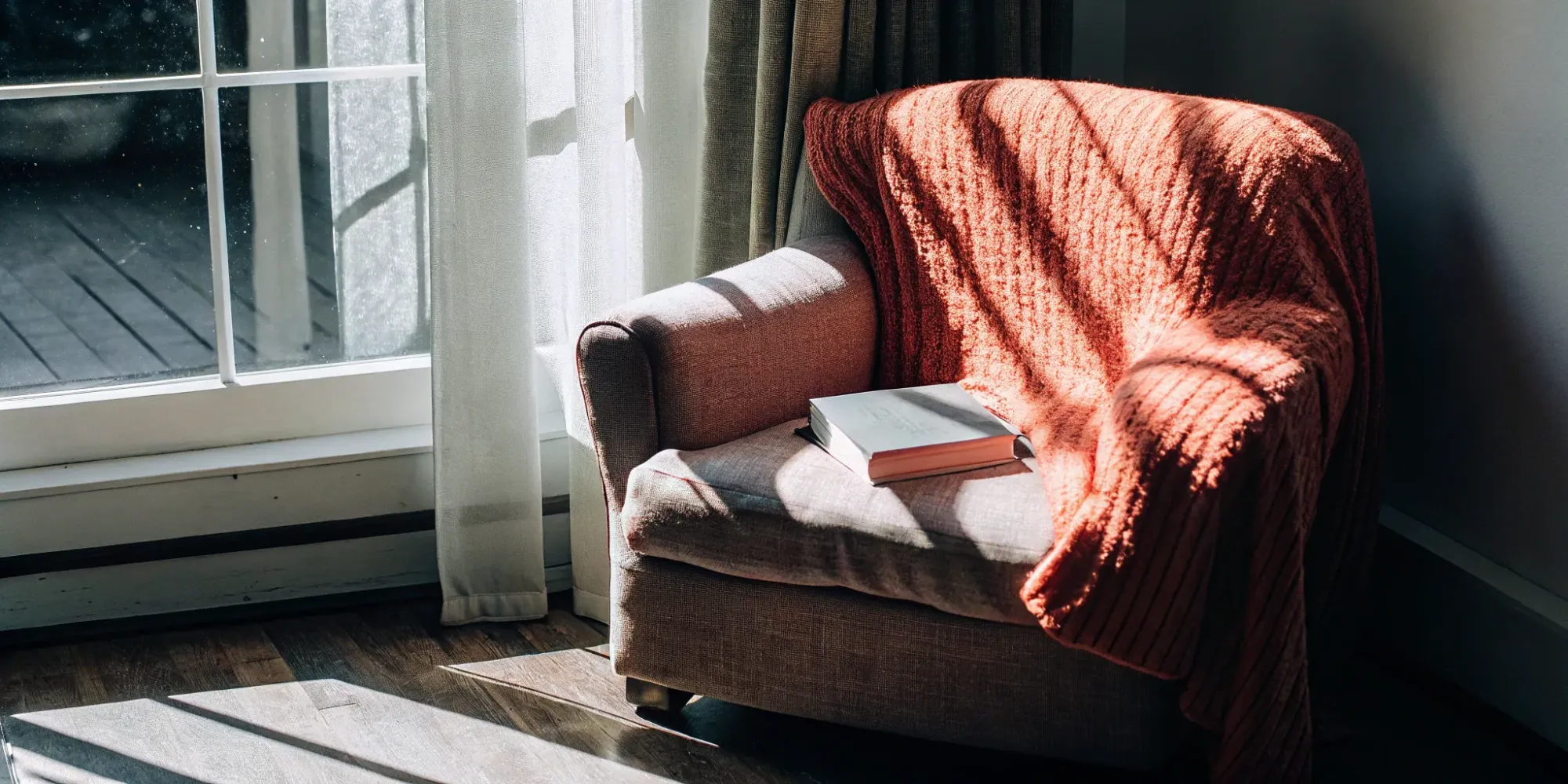Goodcover’s Guide to Pennsylvania Landlord-Tenant Laws
3 Apr 2024 • 6 min read

As a Pennsylvania renter, understanding your rights can empower you to navigate the common challenges of tenancy and maintain a positive relationship with your landlord.
While issues like appliance breakdowns and unexpected rent increases may seem daunting, being prepared will help you make the most of the situation.
At Goodcover, we believe every renter has a right to feel secure and be informed. That way, you can avoid legal issues, resolve conflicts promptly, and rest easy in your home in the Keystone State.
In this guide, we’ll delve into everything from security deposits to rent increases to give you the knowledge and confidence you need to handle any challenges you might face as a renter.
Let’s dive in.
- Goodcover’s Guide to Pennsylvania Landlord-Tenant Laws
- Basics of PA Tenant-Landlord Rights and Laws
- Security Deposits in Pennsylvania
- Rent Rules & Regulations
- Maintenance & Habitability Standards
- How Rent Increases Work in Pennsylvania
- Final Thoughts: How Landlord-Tenant Laws Work in Pennsylvania
Basics of PA Tenant-Landlord Rights and Laws
Pennsylvania has laws, like the PA Landlord-Tenant Act of 1951, that establish landlord-tenant rights and duties when it comes to issues like leases, rent, maintenance, and repairs. These laws exist to protect renters from unfair treatment.
For example, thanks to the act, landlords must provide tenants with livable conditions that meet basic health and safety standards.
Here’s what that means:
- Adequate heating
- Hot and cold water
- Working electricity and plumbing
- Pest control
- Weather-proofing
The law even specifies that landlords must ensure rental units can stay at least 68 degrees inside from October through April. Brr!
That said, as a renter, you have responsibilities too (e.g., paying rent on time and not damaging the property). However, the law prohibits landlords from retaliating against tenants who complain or stand up for their rights.
So, say the furnace has been broken for a week in January, and you politely ask the landlord to fix it — the landlord’s responsibilities state that they can't just kick you out or raise your rent as punishment.
The act also makes landlords promptly fix issues reported by tenants if they impact habitability, with emergency repairs needing attention within 24 hours.
Remember: When you’re forced to leave your place due to a covered loss, you can fall back on your renters insurance policy’s temporary housing coverage. It’ll cover extra living expenses (such as food and a hotel) until you can return home.
To learn more about temporary housing, read our Pennsylvanian renters insurance guide.
All in all, while being a renter can sometimes be stressful, the baseline legal rights and protections under the Landlord and Tenant Act make a big difference and lead to a smoother landlord-tenant relationship.
Security Deposits in Pennsylvania
Pennsylvania doesn't mess around when it comes to security deposit rules for renters. The state lays out clear guidelines for landlords to follow.
First, your security deposit can't exceed two (2) months' worth of rent in the first year of your lease. For subsequent years, it drops to just one (1) month's rent.
And remember: That deposit isn't the landlord's — it still belongs to you as the renter. Landlords must place the funds in approved escrow accounts rather than their personal bank accounts.
You'll get back your full security deposit after moving out if you leave the rental property clean, undamaged beyond normal wear and tear, and pay any outstanding bills. Just be sure to provide your forwarding address.
But if deductions are taken out for damages, landlords must send you an itemized written statement explaining any withholdings within 30 days, along with the remainder.
If the landlord doesn't provide a receipt with reasons for withholding deposits within a month, you can take legal action to recover double the amount they wrongfully kept.
These detailed rules protect renters from sketchy security deposit games that used to be common. Just do your part by avoiding property damage and your deposits will be safe.
Rent Rules & Regulations
When it comes to rent payments and terms of the written lease, Pennsylvania tenants have protections under the law against unfair landlord property management.
For instance, landlords can only charge certain fees if they were explicitly included in your original lease agreement. These could include penalties for late rent payments or bounced checks.
They can't just randomly invent new fees out of thin air — it must be agreed upon upfront in the contract. As such, make sure to confirm the elements below align with your expectations before signing the contract:
The law also upholds a tenant's basic right to quiet enjoyment of the property. That means landlords must provide reasonable advance notice before entering your rental outside emergencies — typically 24 hours by law.
They can't just show up unannounced or let themselves in any time they please without warning.
Of course, respect around access goes both ways. As a renter, you also can't unreasonably withhold permission for the owner to enter to conduct inspections, repairs, or essential maintenance. There's an understanding about working together cooperatively.
Lastly, in addition to federal law, the Fair Housing Act protects renters from housing discrimination based on race, sex, disability, and national origin.
Maintenance & Habitability Standards
The state's Landlord Tenant Act mandates that rentals must be livable, sanitary, and safe, meeting minimum structural, health, and safety standards.
Here’s what the law outlines and requires:
- Proper heat
- Hot and cold running water
- Adequate weather-proofing
- Pest control
- Trash removal
- Working fixtures, appliances, and utilities (with necessary repair services)
The habitability standards even mandate that landlords supply enough heat to keep a unit at least 68 degrees Fahrenheit from October to April. If your landlord skimps on heating, they're breaking the law during chilly months.
So, if your home is too cold for comfort, it's your right to get adequate HVAC systems or seek legal advice until service is restored.
The same goes for non-emergency but essential maintenance requests — landlords must make good-faith efforts to fix issues. While that doesn't mean pestering about minor cosmetic flaws, anything materially affecting habitability or safety should receive prompt attention.
Tenants have recourse options if reasonable actions and timelines aren't upheld for maintaining uninhabitable dwellings, including formal complaints.
That ensures landlords can't get away with renting barely livable shacks or ignoring real repairs that impact your health and well-being. The habitability standards enforce accountability.
How Rent Increases Work in Pennsylvania
Bummed to get an end-of-the-lease notice from your Pennsylvania landlord announcing a big rent hike? Well, don't assume you're totally stuck just yet. While there aren’t any rent control laws in PA, your existing rental agreement might offer protections.
If you signed a longer multi-year rental contract preventing changes to rent for set periods, no rate hikes can apply until that term ends. For instance, if you have a 24-month agreement locking the amount of rent month-to-month, the landlord cannot bump up pricing until those two years are complete.
Even in renewal years, state law mandates reasonable advance notice on rent increases for annual leases, which helps cushion the impact on your budget planning.
After the first year locked-in period, landlords must provide a 30-day written notice of rate changes. A 60-day notice is required to increase rent on a third-year lease or beyond.
Plus, some leases require consent from both parties to alter costs, which gives tenants leverage to open a conversation. If the proposed rent increase doesn't work for your budget, politely discuss it with your landlord.
Provide factual reasons for a lower or delayed increase, like needing more time to financially prepare or finding comparator units rented for less nearby.
Many reasonable landlords will hear you out, especially if you’re a long-term tenant who has paid rent reliably even through tough times.
Just remember: Open conversations aim to align interests, not make demands. The key is respectful, factual, and calm dialogue.
While rental markets and inflation also impact landlords, PA rental laws prevent aggressive price gouging without notice. They encourage proper business etiquette in communications.
So, when both parties understand the notices and conditions required around rate changes, unreasonable rent hikes happen far less often.
Final Thoughts: How Landlord-Tenant Laws Work in Pennsylvania
While landlord-tenant laws establish minimum standards for rental conditions and deposit refunds, they have limitations. Legal processes can be slow, plus damages from disasters or accidents may exceed the security deposit money set aside.
With Goodcover’s renters insurance, you can ensure you and your belongings stay protected. You’ll get personal property, liability, and temporary housing coverage at an affordable cost.
Get a free quote today.
Note: This post is meant for informational purposes; insurance regulation and coverage specifics vary by location and person. Check your policy for exact coverage information.
For additional questions, reach out to us – we’re happy to help.
More stories
Dan Di Spaltro • 21 Jul 2025 • 18 min read
How to Make Changes to Your Tenancy Agreement
Dan Di Spaltro • 18 Jul 2025 • 21 min read
Most Affordable Renters Insurance: A Complete Guide
Dan Di Spaltro • 17 Jul 2025 • 18 min read
Affordable Renters Insurance in Florida: Top Picks for Savings
Dan Di Spaltro • 16 Jul 2025 • 22 min read
Your Guide to Affordable Renters Insurance
Dan Di Spaltro • 15 Jul 2025 • 16 min read




